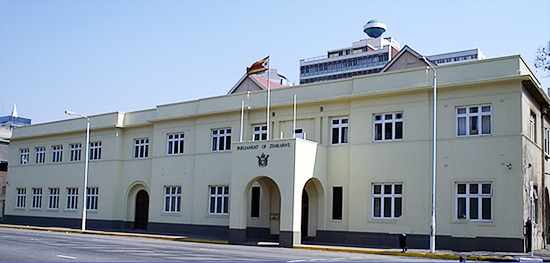The Parliament of Zimbabwe has said it is concerned by delays in the disbursement of the ZWL$18 billion Covid-19 stimulus package to industry.
In his address to the nation, President Emmerson Mnangagwa in May announced the ZWL$18 billion to be extended to various sectors of the country’s ailing economy as part of measures by the government to cushion businesses from the devastating impact of the pandemic.
The advent of the global pandemic saw the government place the country under lockdown on March 30, which has undergone a number of reviews and adjustments.
As a result of the lockdown businesses have suffered losses owing to reduced operating hours while others have at one point totally shut down.
Tabling the Parliamentary portfolio committee on Budget, Finance and Economic Development’s analysis of the 2020 mid-term national budget review, portfolio committee chair, Felix Mhona, said legislators were not happy with the pace at which the government was disbursing the Covid-19 stimulus package.
“The Committee is concerned with the delay in the disbursement of the $18.2 billion stimulus package, which amounts to 28.6% of the 2020 national budget,” said Mhona.
“When the package was announced, it was worth US$720 million using official exchange rate of US 1 Z: 25 and US$ 360 million using parallel market rates. These delays in the wake of imminent prolonged lockdowns will exacerbate the impact of the pandemic on the economy. As such, a growth target of -4.5 % may not be achieved.”
The Zimbabwe dollar currently trades at ZWL$83.3 against the United States dollar.
The country’s agricultural sector was allocated the largest chunk of the Covid-19 stimulus fund.
In his latest report entitled: “Progress on Economic and Structural Reforms in Zimbabwe” Ncube said a total of ZWL$6.1 billion was extended to agriculture sector support.
After agriculture, a total of ZWL$ 3 billion went towards the working capital fund for industry.
“Prioritised agriculture programmes guided by the agriculture recovery plan, priority is on productivity through mechanisation, livestock production, irrigation, soil conditioning, extension services and appropriate and timely financing,” said Ncube.
He said progress on reforms in agriculture saw the replacement of Command Agriculture with private sector funded smart agriculture.
Part of the reforms, Ncube said, culminated into the completion of the land audit, progress being registered in farms downsizing and the signing of the Global Compensation Deed.

